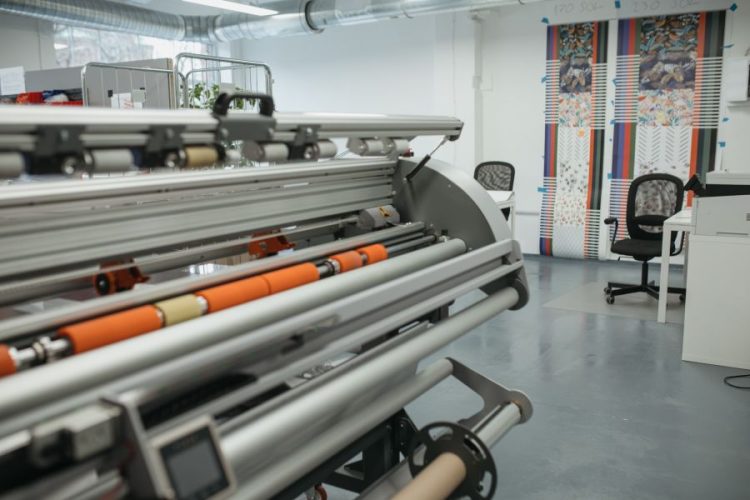What You Need to Know About Preventive Maintenance in Manufacturing Facilities

Categories :
In the fast-paced world of manufacturing, where every minute of downtime can translate to significant losses, the importance of preventive maintenance cannot be overstated. This comprehensive guide aims to unravel the intricacies of preventive maintenance, shedding light on its multifaceted benefits and providing actionable insights for manufacturing facilities looking to optimize their operations.
Understanding the Essence of Preventive Maintenance
At its core, preventive maintenance is a philosophy that transcends the traditional "fix it when it breaks" mentality. It embodies a proactive approach to equipment management, emphasizing scheduled inspections and routine maintenance to identify and rectify potential issues before they escalate. By integrating this methodology into the operational framework, manufacturers can significantly reduce the occurrence of unexpected breakdowns, thereby enhancing overall operational efficiency.
In essence, preventive maintenance is akin to a health checkup for machinery. Just as regular health checkups enable early detection of potential health issues, scheduled maintenance tasks allow manufacturers to catch and address equipment anomalies before they evolve into critical failures. This approach not only minimizes unplanned downtime but also contributes to a smoother, more predictable production process.
Warehouse and manufacturing facility owners understand the critical role that uptime plays in meeting customer demands and staying ahead of competitors. If you plan on building a new facility or upgrading your current one, be sure to get a quote from a trusted company that provides preventative maintenance and engineering services for material handling systems. They can perform routine inspections, identify potential risks, and offer tailored solutions to ensure your equipment is running at peak performance.
The Cost-Effective Advantage
While some may view preventive maintenance as an added expense, it is, in fact, a strategic investment with substantial long-term benefits. The misconception that it only increases operational costs stems from a narrow perspective that fails to account for the broader financial implications of equipment breakdowns.
Consider this: the cost of replacing a critical component that fails unexpectedly is not only higher in terms of immediate expenses but also includes the indirect costs associated with production halts and potential damage to other interconnected components. In contrast, the predictable costs of a well-executed preventive maintenance plan can be budgeted and are typically significantly lower than the financial repercussions of reactive maintenance.
Implementing an Effective Preventive Maintenance Plan
Crafting a robust preventive maintenance plan requires a systematic and thorough understanding of the manufacturing facility's unique needs. This involves a comprehensive assessment of the equipment inventory, historical performance data, and critical components that may require specialized attention.
Scheduling is a critical aspect of an effective preventive maintenance plan. This entails creating a well-structured calendar for routine inspections, lubrication, and calibration activities. The frequency of these tasks should be tailored to the specific requirements of each piece of equipment, considering factors such as usage patterns, environmental conditions, and manufacturer recommendations.
Addressing the Human Element
While machines and technology are at the forefront of manufacturing, the human element is equally vital in the success of preventive maintenance initiatives. Educating and training maintenance teams on the intricacies of preventive maintenance fosters a culture of accountability and awareness.
This educational aspect extends beyond the maintenance team to include all personnel interacting with the machinery. Creating a culture where everyone understands the importance of reporting issues promptly and adhering to maintenance schedules is paramount. Employees who are empowered with knowledge are more likely to actively contribute to the success of the preventive maintenance program, recognizing their role in the larger picture of operational efficiency.
Balancing Production and Maintenance
Finding the delicate equilibrium between production demands and maintenance requirements is an ongoing challenge for manufacturing facilities. The goal is to minimize downtime while ensuring that preventive maintenance tasks are executed with precision. Achieving this balance involves strategic planning, efficient scheduling, and the integration of maintenance activities into the broader production workflow.
One effective approach is to implement a phased maintenance schedule that aligns with production cycles. By carefully planning maintenance activities during periods of lower production demand, manufacturers can minimize the impact on overall output. This requires a deep understanding of production schedules, peak demand periods, and the flexibility to adapt the maintenance plan based on the dynamic nature of manufacturing operations.
Leveraging Technology for Optimal Results
In the era of Industry 4.0, technology emerges as a powerful ally in the realm of preventive maintenance. The integration of advanced technologies not only enhances the precision of maintenance activities but also transforms the entire approach to equipment management.
Computerized Maintenance Management Systems (CMMS) are central to this technological evolution. These systems provide a centralized platform for managing all aspects of preventive maintenance, from scheduling and task assignment to inventory management and performance tracking. CMMS not only streamlines the administrative aspects of maintenance but also serves as a repository of valuable data that can inform decision-making and continuous improvement initiatives.
The Internet of Things (IoT) further elevates the capabilities of preventive maintenance. IoT sensors embedded in machinery continuously collect data on various parameters such as temperature, vibration, and usage patterns. This real-time data is then analyzed to detect anomalies and predict potential failures before they occur. The result is a shift from reactive to predictive maintenance, where issues are addressed proactively, reducing downtime and extending the lifespan of equipment.









